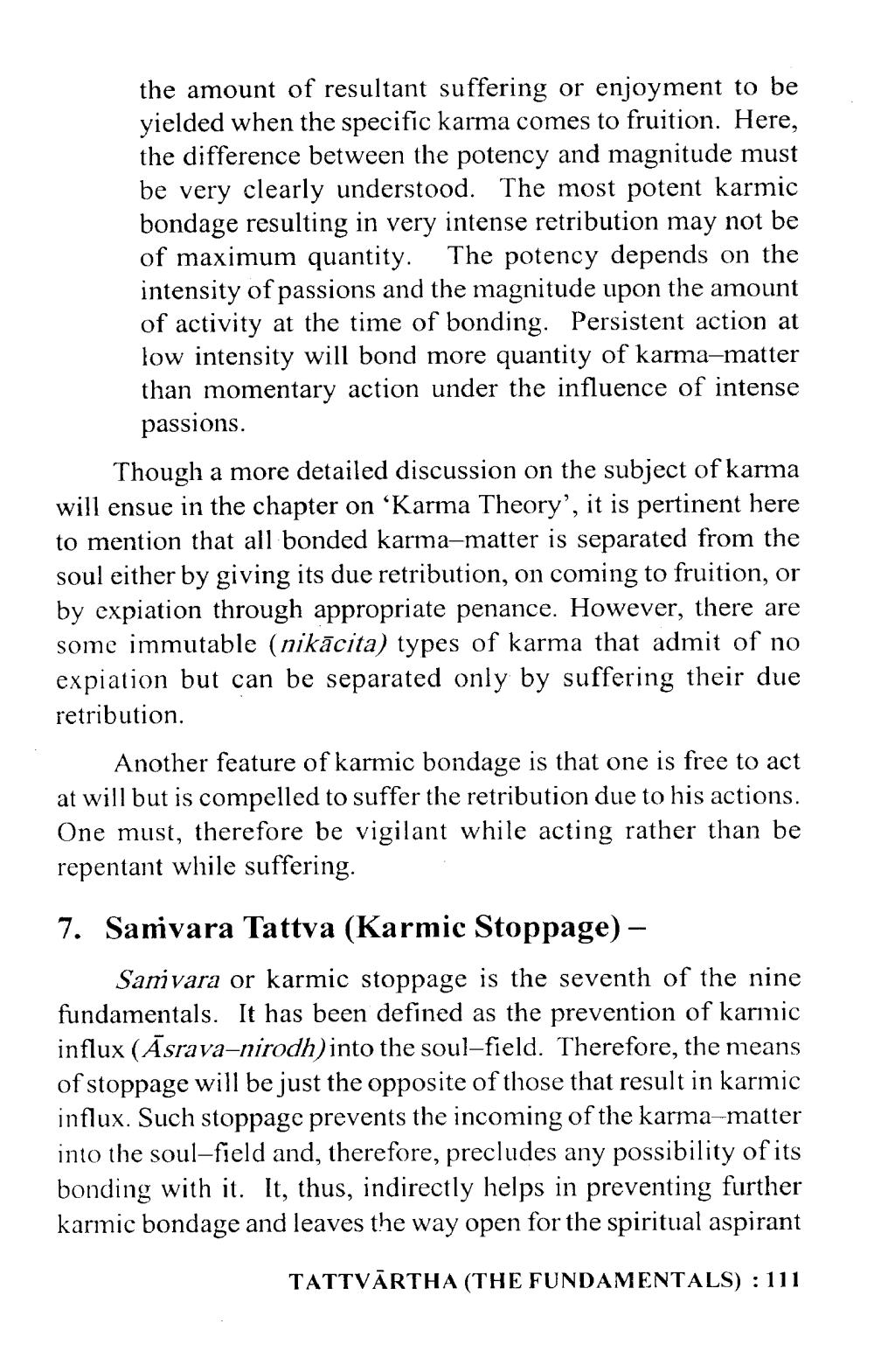________________
the amount of resultant suffering or enjoyment to be yielded when the specific karma comes to fruition. Here, the difference between the potency and magnitude must be very clearly understood. The most potent karmic bondage resulting in very intense retribution may not be of maximum quantity. The potency depends on the intensity of passions and the magnitude upon the amount of activity at the time of bonding. Persistent action at low intensity will bond more quantity of karma-matter than momentary action under the influence of intense
passions.
Though a more detailed discussion on the subject of karma will ensue in the chapter on ‘Karma Theory', it is pertinent here to mention that all bonded karma-matter is separated from the soul either by giving its due retribution, on coming to fruition, or by expiation through appropriate penance. However, there are some immutable (nikācita) types of karma that admit of no expiation but can be separated only by suffering their due retribution.
Another feature of karmic bondage is that one is free to act at will but is compelled to suffer the retribution due to his actions. One must, therefore be vigilant while acting rather than be repentant while suffering.
7. Samvara Tattva (Karmic Stoppage) -
Sanivara or karmic stoppage is the seventh of the nine fundamentals. It has been defined as the prevention of karmic influx (Asrava-nirodh) into the soul-field. Therefore, the means of stoppage will be just the opposite of those that result in karmic influx. Such stoppage prevents the incoming of the karma-matter into the soul-field and, therefore, precludes any possibility of its bonding with it. It, thus, indirectly helps in preventing further karmic bondage and leaves the way open for the spiritual aspirant
TATTVĀRTHA (THE FUNDAMENTALS) : 111




